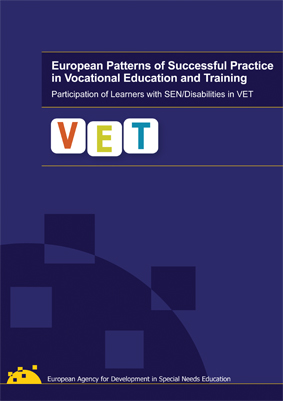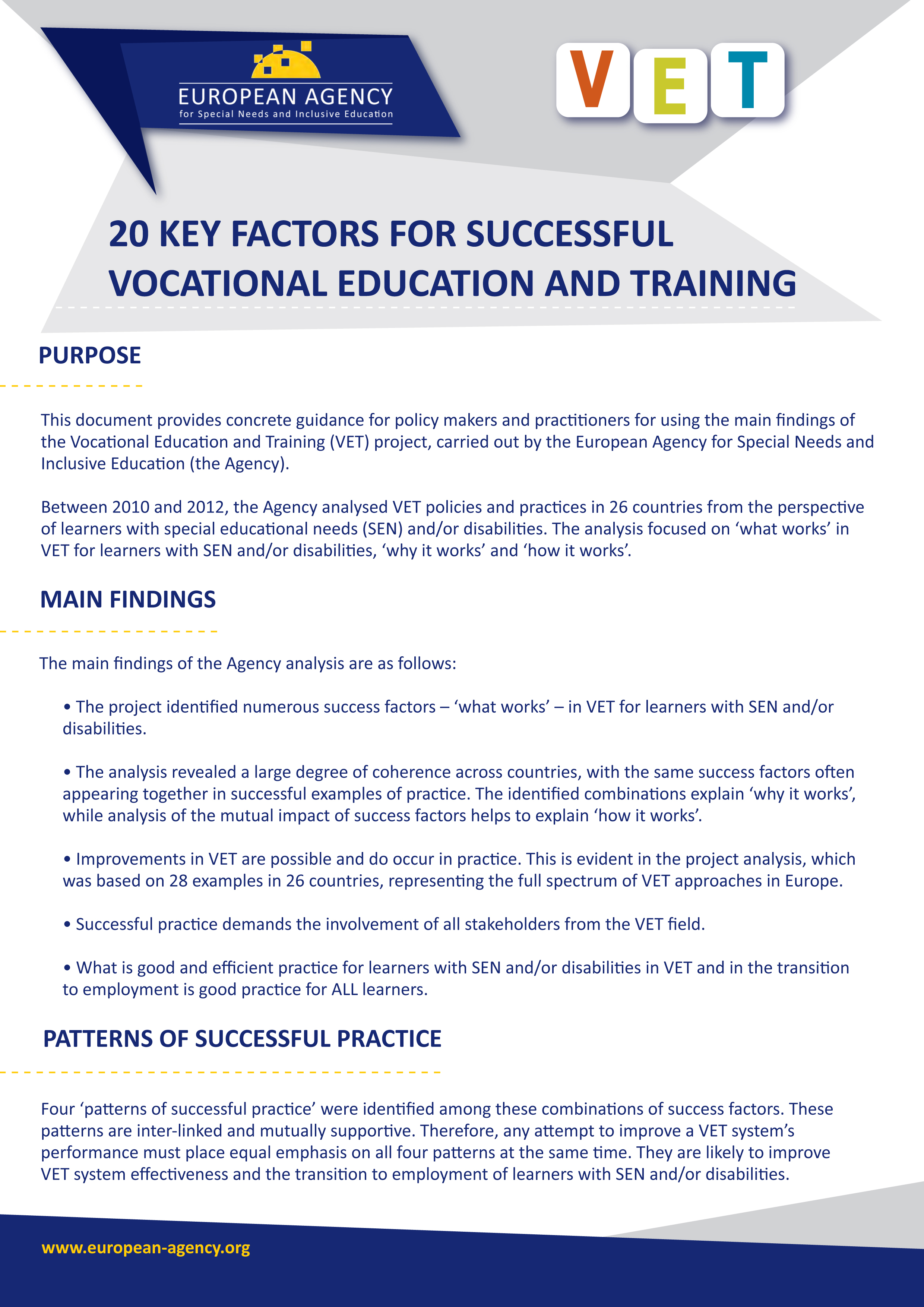Welcome to the Vocational Education and Training web area!
Vocational Education and Training is a broad concept, usually defined at European level as preparing learners for jobs with a basis in manual or practical activities, traditionally non-academic and entirely related to a specific trade, occupation or vocation.
The topic of Vocational Education and Training (VET) in the field of special needs education was highlighted by all Agency country representatives as a top priority. The VET project lasted for three years, with activities beginning in 2010 and running until the end of 2012.
Participants
The Agency member countries involved in the VET project were: Austria, Belgium (covering both the Flemish and French speaking communities), Cyprus, Czech Republic, Denmark, Estonia, Finland, France, Germany, Greece, Hungary, Iceland, Ireland, Latvia, Lithuania, Luxembourg, Malta, Netherlands, Norway, Poland, Portugal, Slovenia, Spain, Sweden, Switzerland, United Kingdom (England, Northern Ireland and Wales).
In addition, representatives from the European Commission (DG Education and Culture), CEDEFOP, ILO and OECD were involved in the project’s activities.
Aims
This project aims to identify and investigate the relevant key aspects of VET programmes for learners with SEN, with a clear link to employment opportunities. In particular, the project investigates what works in VET for learners with SEN and why.
Project activities and outputs
- One of the initial project activities was a review of international literature, in order to ensure that the project utilised suitable methods and theories of research in generating and analysing data. This review was regularly updated throughout the course of the project.
- The subsequent country study visits programme comprised 28 study visits to the selected VET examples, with the participation, in every study visit, of a small group of experts from other countries and Agency staff, as well as the active involvement of the local partners and stakeholders connected with the host VET programme.
- The project organised a conference on 12–13 November 2012, under the aegis of the EU Presidency in Cyprus.
- On 8 May 2013, MEP Ádám Kósa, President of the Disability Intergroup hosted the launch of the VET project outcomes in the European Parliament, with active involvement of distinguished professionals and representatives of international bodies and European Institutions.
- An analysis of the state of the art in Europe regarding policies and practices on VET for learners with SEN in the Summary of Country Information report.
- Participation of Learners with Special Educational Needs and/or Disabilities in Vocational Education and Training - Policy Brief.
- The European Patterns of Successful Practice in Vocational Education and Training report was developed as a result of a coherent and comprehensive analysis of 28 VET practices.
- A further output of this project is the methodology employed in the project for analysing the study visit outcomes and for setting up a VET system model.
- 20 Key Factors for Successful Vocational Education and Training flyer presents a list of 20 key factors, identified in the course of the project in the majority of the practices analysed.


